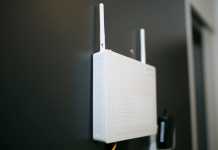
With the potential to potentially purchase up to 40% of the chips required for all iPhones, Apple originally intended to purchase 128-layer 3D NAND flash memory chips from Yangtze Memory Technologies (YMTC) for use in iPhones sold in the Chinese market as early as this year.
The supplier is widely anticipated to be banned in early December for trade restrictions after YMTC and 30 other Chinese corporations were added to a list of businesses that U.S. officials have been unable to check, putting those plans on hold last month.
Without a licence, American businesses are not allowed to share any designs, technology, documents, or specifications with organisations on the Unverified List. The U.S. export control blacklist may be expanded to include businesses that are unable to deliver the required information within 60 days. The U.S. Commerce Department is also looking into whether YMTC sold chips to the already-blacklisted Huawei in violation of American export laws.
According to supply chain sources mentioned in the story, Apple will now turn to Samsung Electronics as a backup supplier beginning in 2023 as a result of the constraints.
According to the sources, Samsung, who has long been the primary supplier of DRAM chips for iPhones, will begin supplying NAND flash for iOS devices from its plant in China’s Xian in 2019. This plant currently contributes 40% of the Korean vendor’s total 3D NAND flash capacity, which ranges from 128 to 176 layers.
Due in part to its integration into the Apple supply chain, Samsung has not reduced output in response to weak NAND flash market demand, unlike its competitors. The Korean firm is also believed to be able to afford price reductions and output improvements, which has increased its competitiveness even more.
The Biden administration’s export restrictions on China are an effort to halt the nation’s scientific and military advancements by denying Beijing access to particular semiconductor chips produced anywhere in the globe using American machinery.














































